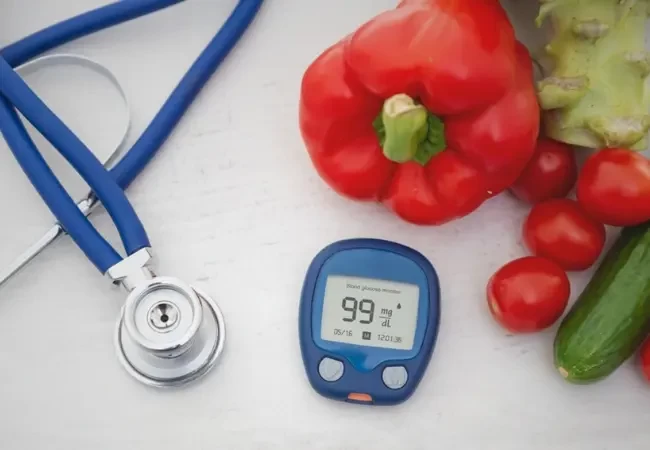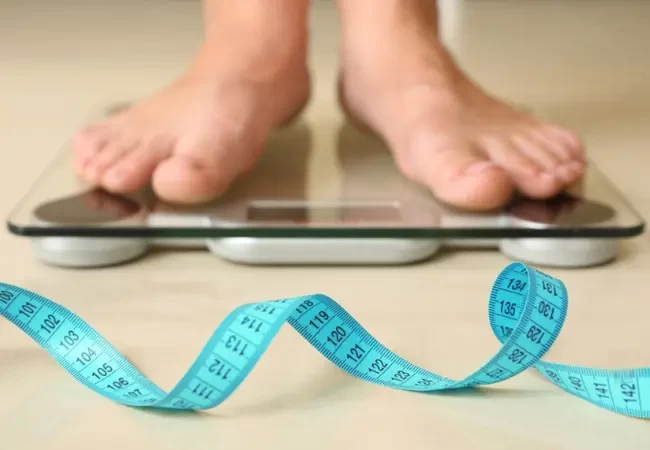Blog
Diabetes
& Bone Health

How Diabetes Impacts Bone Health?
 Medically reviewed by: Dr. Tom Babu, Medical Director, Consultant Diabetologist & Endocrinologist - Written by Jasni Salim - Updated on 28 October 2024
Medically reviewed by: Dr. Tom Babu, Medical Director, Consultant Diabetologist & Endocrinologist - Written by Jasni Salim - Updated on 28 October 2024If you have diabetes, it is important to take care of your bones because you may have a higher chance of getting osteoporosis. Osteoporosis is a condition that makes bones weak and more likely to break. The most common bones to break are in your back, wrist and hip. It is called a "silent disease" because you cannot feel or see your bones getting weaker. Many people do not know they have it until they break a bone. People with osteoporosis often break bones from small falls like from standing up. A broken bone can make it hard to do everyday activities and can lead to serious problems. Keep on reading to know more diabetes and bone health.
What is the Relationship between Diabetes and Bone Health?
People with poorly managed diabetes might lose more bone than those who manage their diabetes well. It is important to keep your blood sugar levels as close to normal as you can.
If you have Type 1 diabetes:
- You might have been diagnosed with diabetes when you were young which is a time when your bones are growing the most.
- The cells that help make bone do not work as well in people with bone density diabetes.
- Because of this, you may have weaker bones and a greater chance of getting fractures.
If you have Type 2 diabetes:
- You can get diabetes at any age.
- If you have bone density diabetes, you might be more likely to break bones even if your bone strength is the same as others.
- You could be more likely to fall because of diabetes-related problems like changes in your vision or numbness in your feet.
- You might take a type of medicine called thiazolidinediones (TZDs) which can sometimes cause bone loss and make it easier to break bones.
How Do You Protect Your Bones if You Have Diabetes?
Osteoporosis is a disease that can often be stopped with good habits. Check out some of the ways to help keep your bone and diabetes healthy:
Request a Diabetes and Bone Density Test
Ask your doctor for a diabetes and bone density test called a DEXA scan. It is a quick X-ray that checks how strong your bones are. The test takes less than 20 minutes and can show how likely you are to lose bone or get osteoporosis.
Focus on Nutrition
People with weak bone and diabetes often have low vitamin D levels. Vitamin D is important to help the body use calcium properly. To increase both, try to eat more foods rich in these nutrients or take a daily supplement.
If you think you might not have enough vitamin D, ask your doctor for a blood test. If your levels are low, you may receive a prescription for a stronger vitamin D supplement.
For people aged 1 year and older, aim for at least 15 mcg (600 IU) of vitamin D each day. Babies under 1 year should have their vitamin D needs discussed with a doctor. Those with diabetes might need more than 600 IU daily if their levels are low. Adults more than 71 years should get 800 IU. Always talk to your doctor about the right vitamin D amount for you.
Exercise Regularly
Regular exercise like strength training and weightlifting keeps bones strong and helps prevent bone loss. It also makes you stronger, improves balance and increases flexibility which can help stop falls that might lead to osteoporosis. In addition, exercise is good for people with diabetes because it helps control blood sugar levels. Thus, staying active is really beneficial for both strong bones and managing diabetes together.
Maintain a Healthy Lifestyle
To keep your bones strong and lower your risk of falls, you can try these tips:
- Do not smoke as it hurts vitamin absorption
- Drink less alcohol
- Get some sunlight for vitamin D
- Eat healthy foods
- Consider taking vitamin D and calcium pills
- Keep your blood sugar stable
- Have regular eye check-ups
- Exercise regularly
These tips not only help with bone health but also make managing diabetes easier which make them good choices for anyone with osteoporosis, diabetes or both.
Related Blog:
Common Bone Diseases Found in Diabetic PatientsConclusion
Osteoporosis and diabetes can occur together but one does not cause the other. Having diabetes can increase your chances of getting osteoporosis and having osteoporosis can make it harder to manage diabetes. To protect your bones if you have diabetes, you can do a few things like make sure you get enough calcium and vitamin D, exercise regularly with strength training, get tested for bone density, avoid smoking, limit alcohol and keep your blood sugar levels healthy. These steps can help you stay strong and healthy.
You can visit Silverline which is a top diabetic hospital in Kochi, Kerala. Our team of diabetologists is dedicated to giving great care to the patients and aims to be the best diabetes hospital in India.

More Blogs
-

Struggling with Erection or Early Ejaculation? Here's How to Get Help
Struggling with erectile dysfunction or premature ejaculation? Learn common causes, treatments, and how to seek professional help with confidence.
-

When Should Diabetics Eat? Expert Tips on Meal Timing and Blood Sugar Control
Learn how diabetics can optimize meal timing to better control blood sugar. Expert tips for healthier, more balanced living.
-

Facing the Fear: Understanding Psychological Erectile Dysfunction Before Marriage
Discover the causes and solutions for psychological erectile dysfunction before marriage. Gain insight, support, and confidence for a healthy relationship.
-

Why Overweight Individuals Should Embrace Early Dinners
Ready to lose weight smarter? See why early dinners are a game-changer for overweight individuals aiming for lasting health and weight control.
-

Overweight? Start with This One Powerful Lifestyle Change
Struggling with weight? Most of us eat our heaviest meal of the day at night, usually after 9 or even 10 PM.


 Home
Home  Booking
Booking
 Chat Now
Chat Now  Call Us
Call Us